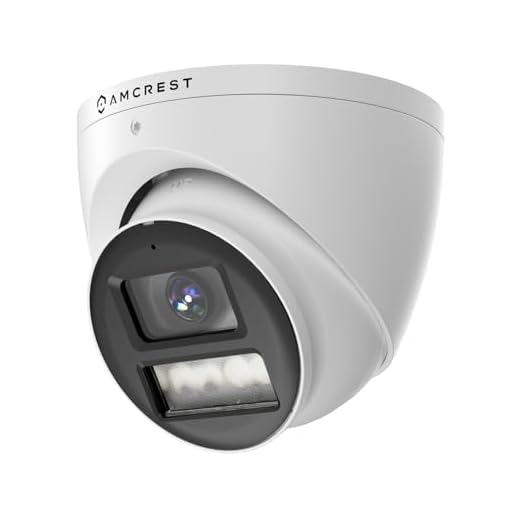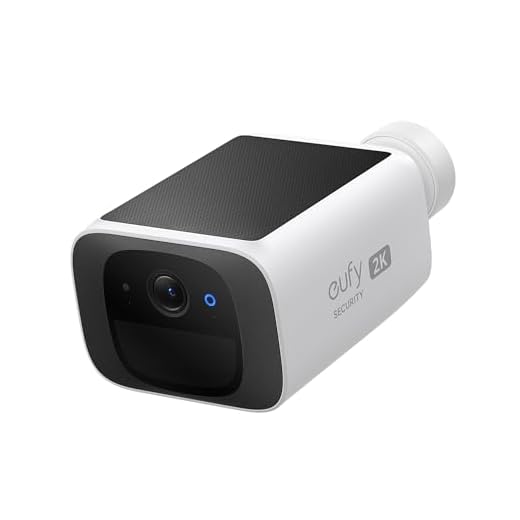




Security cameras and DVRs are essential components of a comprehensive security system, providing valuable surveillance and recording capabilities to protect homes and businesses. However, when it comes to compatibility, not all security cameras are compatible with all DVRs. This raises the question: will any security camera work with any DVR?
The short answer is no. While some security cameras and DVRs are designed to be compatible with a wide range of devices, many manufacturers produce proprietary systems that are only compatible with their own products. This means that it is important to carefully consider compatibility when selecting security cameras and DVRs for your system.
Will Security Cameras Work with Different DVRs?
One common question that arises when setting up a security camera system is whether security cameras are compatible with different DVRs. The answer to this question depends on the type of security camera and DVR you are using.
Generally, security cameras that use the same technology as the DVR (such as analog or IP cameras) will be compatible with that specific DVR. However, if you are mixing different types of cameras (analog and IP, for example), you may run into compatibility issues.
It is important to check the specifications of both the security cameras and the DVR to ensure they are compatible with each other. Some DVRs may have limitations on the types of cameras they can support, so it’s essential to do your research before purchasing any equipment.
In conclusion, security cameras will work with different DVRs as long as they are compatible in terms of technology and specifications. Always double-check compatibility before making any purchases to avoid any compatibility issues down the road.
Compatibility of Security Cameras and DVR Systems
When it comes to setting up a security camera system, one common question that arises is whether any security camera will work with any DVR system. The short answer is no, not all security cameras are compatible with all DVR systems.
Security cameras come in different types and technologies, such as analog, HD-TVI, HD-CVI, IP, and AHD. Each type of camera requires a specific type of DVR system to function properly. For example, analog cameras can only be connected to analog DVR systems, while IP cameras require NVR (Network Video Recorder) systems.
It’s important to check the specifications of both the security camera and the DVR system to ensure compatibility. Look for compatibility information such as video signal type, resolution, frame rate, and cable connection type. Additionally, some DVR systems may have limitations on the number and type of cameras they can support.
Before purchasing security cameras and DVR systems, make sure to do your research and consult with a professional to ensure that they are compatible and will meet your security needs.
Factors to Consider When Choosing Security Cameras for DVRs
When selecting security cameras for your DVR system, there are several important factors to consider to ensure compatibility and optimal performance. Here are some key considerations:
- Camera Type: Choose cameras that are compatible with your DVR system, whether it’s analog, HD-TVI, HD-CVI, or IP cameras.
- Resolution: Select cameras with the appropriate resolution for your needs, such as 720p, 1080p, or higher for clearer images.
- Field of View: Consider the viewing angle and coverage area of the cameras to ensure they meet your surveillance requirements.
- Low Light Performance: Look for cameras with good low-light capabilities if you need to capture footage in dimly lit areas.
- Weather Resistance: If the cameras will be installed outdoors, choose weatherproof cameras that can withstand harsh weather conditions.
- Power Source: Decide whether you want cameras that are powered by a separate power source or ones that use Power over Ethernet (PoE) for easier installation.
By considering these factors, you can select security cameras that are compatible with your DVR system and meet your specific surveillance needs.
Importance of Matching Camera Resolution with DVR Recording Capability
When setting up a surveillance system, it is crucial to ensure that the resolution of the security cameras matches the recording capability of the DVR (Digital Video Recorder). Failure to do so can result in poor video quality, loss of important details, and overall ineffective surveillance.
Why Matching Resolution is Important
The resolution of a security camera determines the level of detail and clarity in the captured video footage. If the camera’s resolution is higher than the DVR’s recording capability, the DVR will not be able to fully capture and store all the details, resulting in a loss of information. On the other hand, if the camera’s resolution is lower than the DVR’s recording capability, the video quality will be limited by the camera’s resolution, even if the DVR can handle higher quality footage.
How to Ensure Compatibility
Before purchasing security cameras and DVRs, it is essential to check the specifications of each device to ensure compatibility. Make sure that the camera’s resolution is supported by the DVR’s recording capability to achieve the best possible video quality. Additionally, consider future-proofing your surveillance system by choosing cameras and DVRs with higher resolution capabilities than you currently need, to accommodate any future upgrades or advancements in technology.
Connection Types: Analog vs. IP Cameras for DVR Compatibility
When it comes to connecting security cameras to a DVR system, the type of camera you choose can affect compatibility. The two main types of security cameras are analog and IP cameras, each with its own set of pros and cons.
Analog Cameras
Analog cameras are the traditional type of security cameras that have been used for many years. They transmit video signals over coaxial cables to a DVR for recording and monitoring. Analog cameras are generally less expensive than IP cameras and are easier to install for older systems.
IP Cameras
IP cameras are more advanced and transmit video data over an IP network, such as Ethernet or Wi-Fi. They offer higher resolution and more features compared to analog cameras. However, IP cameras are typically more expensive and may require additional setup for compatibility with a DVR system.
Understanding DVR Channels and Camera Inputs
When it comes to connecting security cameras to a DVR system, it’s crucial to understand the concept of DVR channels and camera inputs. Each DVR system has a specific number of channels, which determines how many cameras can be connected to it.
For example, a DVR with 4 channels can support up to 4 cameras, while a DVR with 8 channels can support up to 8 cameras. It’s important to match the number of cameras you have with the available channels on your DVR to ensure proper functionality.
Additionally, it’s essential to consider the type of camera inputs supported by your DVR. Common types include analog, HD-TVI, HDCVI, and IP cameras. Make sure your DVR is compatible with the type of cameras you plan to use to avoid any compatibility issues.
Compatibility of Wireless Cameras with DVR Systems
When considering the compatibility of wireless cameras with DVR systems, it is important to ensure that the camera and DVR use the same technology. Some wireless cameras operate on different frequencies or protocols, which may not be compatible with certain DVR systems.
Before purchasing a wireless camera for your DVR system, it is recommended to check the specifications of both the camera and the DVR to ensure they are compatible. Some DVR systems may have specific requirements for the type of wireless cameras they can support.
Additionally, it is essential to make sure that the wireless camera and DVR system use the same encryption standards for secure transmission of video footage. Compatibility issues can arise if the encryption protocols do not match between the camera and DVR.
| Key considerations for compatibility: |
|---|
| Matching wireless technology (e.g., Wi-Fi, Bluetooth) |
| Frequency compatibility between camera and DVR |
| Encryption standards for secure video transmission |
Software and Firmware Compatibility for Seamless Integration
When considering the compatibility of security cameras with a DVR system, it is crucial to also assess the software and firmware compatibility for seamless integration. Different cameras and DVR systems may require specific software or firmware versions to work together effectively.
Software Compatibility:
Make sure that the security camera you choose is supported by the DVR system’s software. Some DVRs may only work with specific camera brands or models, so it is essential to check compatibility before making a purchase. Additionally, ensure that the software versions of both the camera and DVR are compatible to avoid any functionality issues.
Firmware Compatibility:
Similarly, firmware compatibility is essential for smooth operation between security cameras and DVR systems. Check if the camera and DVR require any firmware updates to work together seamlessly. Keeping both devices up-to-date with the latest firmware versions can help prevent compatibility issues and ensure optimal performance.
Final Thoughts on Security Camera and DVR Compatibility
When it comes to security camera and DVR compatibility, it is essential to ensure that the cameras you choose are compatible with the DVR system you have or plan to purchase. While some cameras and DVRs may claim to be universal or compatible with any system, it is always best to double-check and confirm compatibility before making a purchase.
It is recommended to stick with cameras and DVRs from the same manufacturer or within the same ecosystem to guarantee seamless integration and optimal performance. This will also help simplify the setup process and ensure that all features and functionalities work as intended.
Considerations for Compatibility:
- Resolution: Make sure the camera resolution matches the DVR’s recording capabilities for clear and crisp footage.
- Connectivity: Check if the camera uses compatible cables and connectors with the DVR system.
By paying attention to these compatibility factors and doing thorough research before making a purchase, you can ensure that your security camera system works efficiently and effectively with your DVR, providing you with the peace of mind and security you need.








